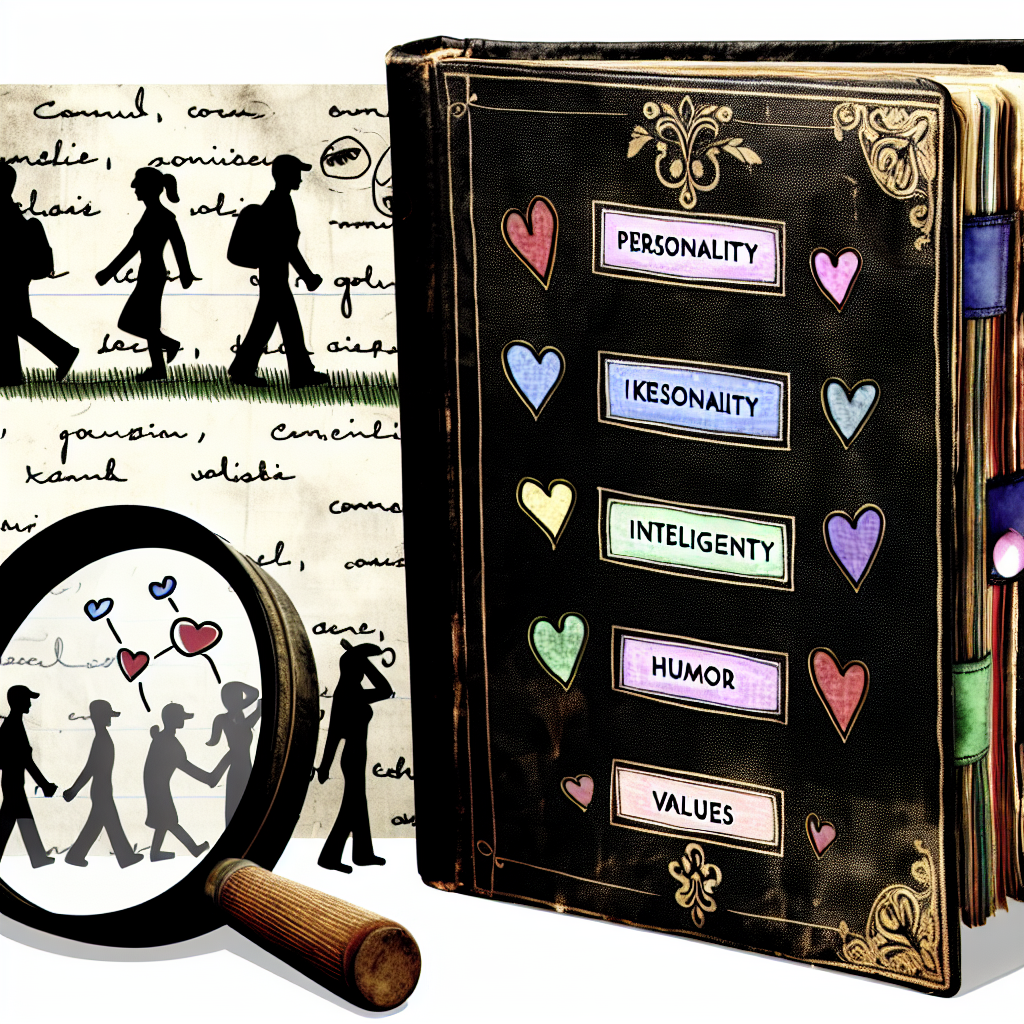Relationship Maintenance: Latest Research-Backed Strategies for Lasting Love
Introduction: The Science Behind Happy, Lasting Relationships
Building a relationship is often exciting, but maintaining a healthy and fulfilling connection requires ongoing effort. Whether you’re in your twenties or your eighties, relationship maintenance is a crucial aspect of long-term happiness. From communication to shared experiences, keeping the spark alive is an ongoing process that takes intention and effort.
Recent relationship research sheds new light on the habits and dynamics that contribute to successful partnerships. Researchers have examined everything from emotional connection to conflict resolution strategies. Their findings reinforce what many have long suspected—relationships that thrive are rooted in strong communication, mutual trust, and the willingness to grow together.
But what does relationship maintenance actually involve? It’s not just about avoiding fights or remembering anniversaries. It includes small, everyday habits and intentional behaviors that create a foundation of love, security, and intimacy. Modern studies suggest that emotional intelligence, gratitude, and even new shared experiences play roles in lasting happiness. Understanding the science behind these factors can help singles and couples alike foster connections that stand the test of time.
One key discovery from current research is that long-term satisfaction in relationships isn’t just about finding the “right” person—it’s about adopting the right behaviors and attitudes. Studies suggest that couples who engage in consistent positive interactions, such as expressing appreciation and maintaining curiosity about one another, report higher satisfaction over time. These findings challenge traditional notions that love either lasts or fades, suggesting instead that relationship success is largely a matter of effort and mindset.
Regardless of your relationship status, understanding how to maintain a healthy partnership is essential. Singles looking to enter long-term relationships can benefit from adopting evidence-based strategies early on, while those already in relationships can use these insights to strengthen their bond. The latest research on relationship maintenance provides actionable strategies to help singles and couples of all ages create connections that are fulfilling, supportive, and resilient over time.
The Science of Relationship Maintenance: Key Findings
Several studies have explored the science behind long-term relationship success, offering critical insights into what works when maintaining love and connection. Here are four of the most significant findings:
1. Emotional Responsiveness: The Heart of Strong Connections
A study published in *The Journal of Social and Personal Relationships* found that emotional responsiveness—how partners acknowledge, understand, and validate each other’s emotions—affects long-term relationship satisfaction. Couples who feel emotionally heard and valued report feeling closer and more committed to their partners over time [(Ogolsky et al., 2022)](https://journals.sagepub.com/home/spr).
**How to Enhance Emotional Responsiveness:**
– Practice active listening by maintaining eye contact and summarizing your partner’s feelings.
– Show empathy by validating their emotions even if you don’t completely agree.
– Be fully present during conversations, avoiding distractions such as phones or TV.
Small actions, such as expressing concern when a partner is stressed, can significantly impact relationship stability.
2. The Power of Daily Gratitude in Strengthening Bonds
A 2019 study from the *Journal of Personality and Social Psychology* revealed that expressing gratitude can have profound effects on relationship strength. Couples who regularly express appreciation report higher levels of commitment, better problem-solving abilities, and greater relationship satisfaction [(Algoe et al., 2019)](https://psycnet.apa.org/buy/2019-00784-001).
**How Gratitude Improves Relationships:**
– Boosts emotional security and strengthens trust.
– Reduces the negative effect of minor disagreements.
– Creates a positive feedback loop where partners feel valued and reciprocate affection.
Even small gestures, like thanking a partner for making dinner or acknowledging their support in stressful times, can have lasting positive effects on your relationship.
3. Shared Novel Experiences: Keeping the Spark Alive
According to a study from *Psychological Science*, couples who engage in new and exciting activities together experience increased relationship satisfaction [(Aron et al., 2020)](https://journals.sagepub.com/home/pss). Novel experiences trigger the release of dopamine, a neurotransmitter associated with pleasure and motivation, recreating the passion and excitement often felt in the early stages of a relationship.
**Ways to Introduce Novel Experiences:**
– Try a new hobby together, such as cooking, dancing, or a craft.
– Travel to a new destination and explore unfamiliar surroundings.
– Spice up date nights by trying activities you wouldn’t normally consider.
By engaging in shared experiences, couples build deeper connections and reinforce their bond.
4. Constructive Conflict Resolution: The Secret to Lasting Love
Conflict is inevitable in any relationship, but the way couples handle disagreements significantly impacts their relationship’s longevity. According to research published in the *Journal of Marriage and Family*, couples who use a constructive communication approach—such as focusing on the issue rather than personal attacks—tend to resolve conflicts more effectively and experience greater relationship satisfaction [(Fincham & Beach, 2021)](https://onlinelibrary.wiley.com/journal/17413737).
**Effective Strategies for Handling Conflict:**
– **Use “I” statements** instead of “you” statements (e.g., “I feel hurt when…” instead of “You always do this!”).
– **Practice active listening** and acknowledge your partner’s feelings.
– **Take breaks** when an argument escalates to avoid saying things you may regret.
By approaching disagreements with a constructive, problem-solving mindset, partners can navigate challenges together rather than as opponents.
Conclusion: Applying Science to Build Stronger Love
Maintaining a healthy relationship requires continuous effort, but the rewards are well worth it. Scientific research highlights the importance of emotional connection, gratitude, shared experiences, and effective communication in ensuring long-term relationship success.
Understanding these insights empowers singles and couples alike to develop stronger, more resilient bonds. Whether you’re just starting out in the dating world or have been in a committed relationship for decades, applying these evidence-based strategies can foster deeper emotional intimacy and lasting love.
By consciously implementing these relationship maintenance behaviors, you can build a partnership filled with appreciation, excitement, understanding, and enduring happiness.
—
**Summary:**
This article explores the latest research-backed strategies for maintaining lasting love in relationships. It highlights key findings on the importance of emotional responsiveness, gratitude, shared novel experiences, and constructive conflict resolution in fostering long-term relationship satisfaction. By understanding and applying these evidence-based insights, singles and couples can develop stronger, more resilient connections that stand the test of time.
—
**References:**
– Ogolsky, B. G., Monk, J., & Wong, A. (2022). Emotional Responsiveness in Long-Term Relationships. *The Journal of Social and Personal Relationships.* [https://journals.sagepub.com/home/spr](https://journals.sagepub.com/home/spr)
– Algoe, S. B., Kurtz, L. E., & Grewen, K. M. (2019). Gratitude Enhances Romantic Bonding. *Journal of Personality and Social Psychology.* [https://psycnet.apa.org/buy/2019-00784-001](https://psycnet.apa.org/buy/2019-00784-001)
– Aron, A., Norman, C. C., & Aron, E. N. (2020). Novel Experiences and Relationship Satisfaction. *Psychological Science.* [https://journals.sagepub.com/home/pss](https://journals.sagepub.com/home/pss)
– Fincham, F. D., & Beach, S. R. (2021). Constructive Conflict Resolution in Marriage. *Journal of Marriage and Family.* [https://onlinelibrary.wiley.com/journal/17413737](https://onlinelibrary.wiley.com/journal/17413737)

Dominic E. is a passionate filmmaker navigating the exciting intersection of art and science. By day, he delves into the complexities of the human body as a full-time medical writer, meticulously translating intricate medical concepts into accessible and engaging narratives. By night, he explores the boundless realm of cinematic storytelling, crafting narratives that evoke emotion and challenge perspectives. Film Student and Full-time Medical Writer for ContentVendor.com




